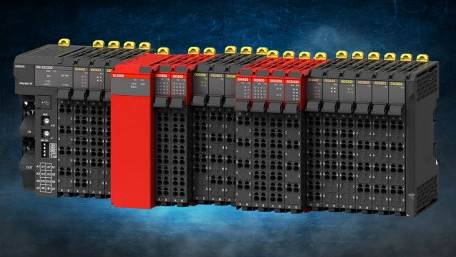
This article investigates the basic qualities that make up a safety PLC, what distinguishes a safety PLC from a standard model, and the reasons for which a…
This article investigates the basic qualities that make up a safety PLC, what distinguishes a safety PLC from a standard model, and the reasons for which a safety PLC may be critical.
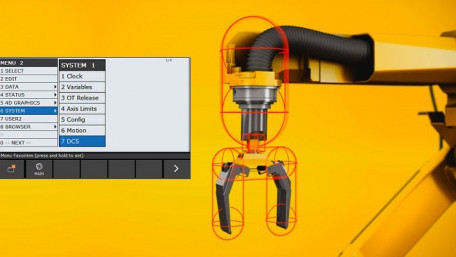
Learn about FANUC’s Dual Check Safety (DCS) system and the various methods, how to configure the DCS parameters, and…
Learn about FANUC’s Dual Check Safety (DCS) system and the various methods, how to configure the DCS parameters, and how to avoid and resolve issues associated with DCS positional alarms.
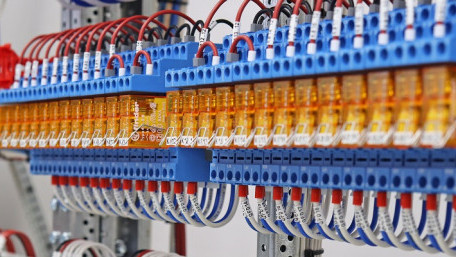
Have you ever heard of a relay? Of course you have. There are many different kinds, plus hundreds of different trade…
Have you ever heard of a relay? Of course you have. There are many different kinds, plus hundreds of different trade lingo names. What are some of the most common, and how do we use them?
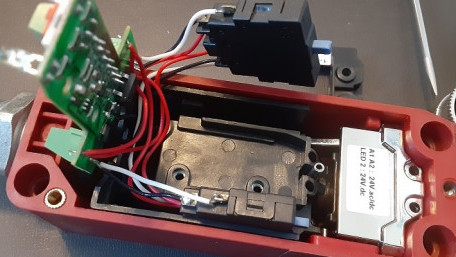
Safety devices have two main purposes, both of them meant for (you guessed it) safety. They protect both machine and…
Safety devices have two main purposes, both of them meant for (you guessed it) safety. They protect both machine and operator from harm. But what’s inside, and how do these switches work?
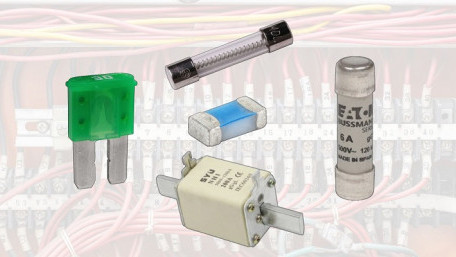
Protecting equipment and personnel from overcurrent dangers, like sparks and fires, is the primary job of the humble…
Protecting equipment and personnel from overcurrent dangers, like sparks and fires, is the primary job of the humble fuse, one of the most basic, yet critical of all safety devices.
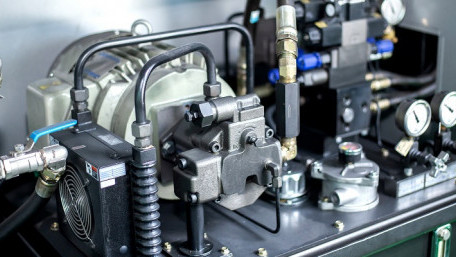
Pressures are always rising and falling in fluid systems. Sometimes the changes are extreme and lead to damage. What…
Pressures are always rising and falling in fluid systems. Sometimes the changes are extreme and lead to damage. What causes problematic pressure changes, and how can you trace them to their source?
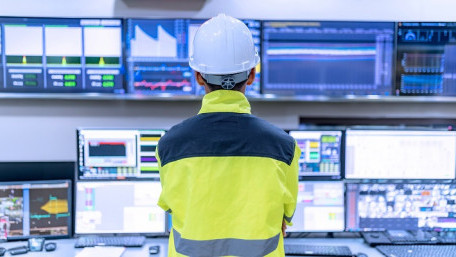
When beginning a new career, an obvious question is how to take positive steps, from your first day inside the plant all…
When beginning a new career, an obvious question is how to take positive steps, from your first day inside the plant all the way to becoming an experienced senior operator.

Understanding the building blocks of s-domain analysis and magnitude response theory can go a long way in helping…
Understanding the building blocks of s-domain analysis and magnitude response theory can go a long way in helping engineers predict how and why some system design choices are made over others.
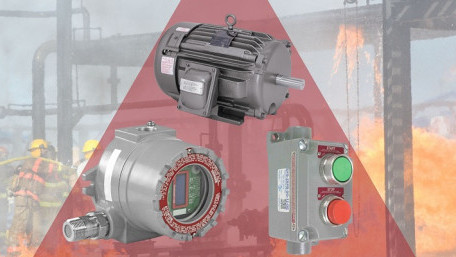
Some workplaces are more dangerous than others, not because of the practices, but rather the products. Where do…
Some workplaces are more dangerous than others, not because of the practices, but rather the products. Where do explosions occur, and what practices exist to reduce such risk for equipment and workforce?
Industrial robots are becoming safer and more economical by utilizing safety signals over Ethernet networks via CIP…
Industrial robots are becoming safer and more economical by utilizing safety signals over Ethernet networks via CIP safety technology.
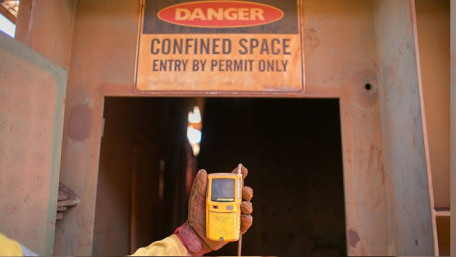
We see smoke detectors on a daily basis in every house and building we visit, but the same sensor elements, and others,…
We see smoke detectors on a daily basis in every house and building we visit, but the same sensor elements, and others, can be used to detect the presence of harmful gasses and heat in all industries.
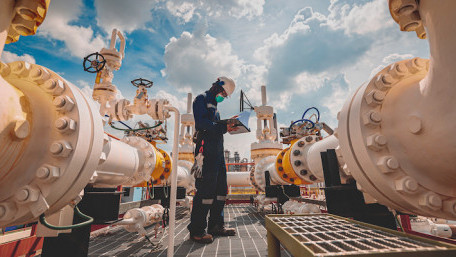
Safety is a concern in any system containing potential energy, whether electrical, chemical, or fluid. Each has methods…
Safety is a concern in any system containing potential energy, whether electrical, chemical, or fluid. Each has methods of protection, and for fluid systems, certain shutoff valves are used in situations when excess pressure can be a problem.
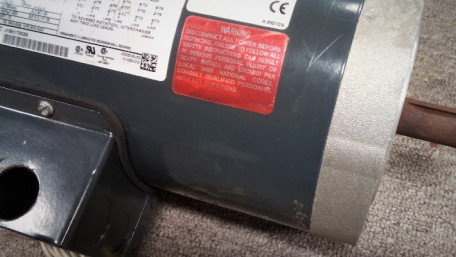
Large motors require a circuit to turn on and off. This may be as simple as a single on/off drum-type switch or as…
Large motors require a circuit to turn on and off. This may be as simple as a single on/off drum-type switch or as elaborate as a VFD unit. Learn about some common control circuit designs for typical three-phase motor requirements.
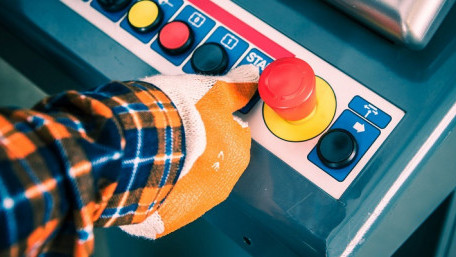
Machine safety design can be a daunting task with all the different safety devices on the market today. Choosing the…
Machine safety design can be a daunting task with all the different safety devices on the market today. Choosing the correct device for your design can be made easier by understanding when to use the proper device.
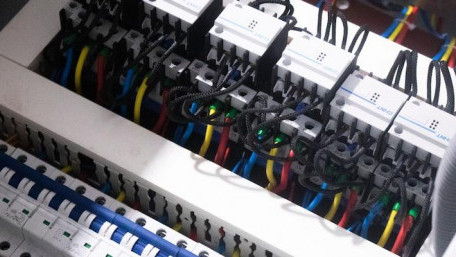
Designing a system with motor motion always includes a consideration of safety. Incorporating safety contactors might be…
Designing a system with motor motion always includes a consideration of safety. Incorporating safety contactors might be the correct prevention to protect equipment and users but may add additional challenges.
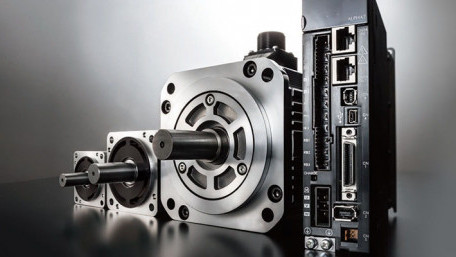
Safety is one of the most critical aspects of machine design. Today, with network connections between different machines…
Safety is one of the most critical aspects of machine design. Today, with network connections between different machines and control centers, safety signals must be shared logically and reliably across networks.
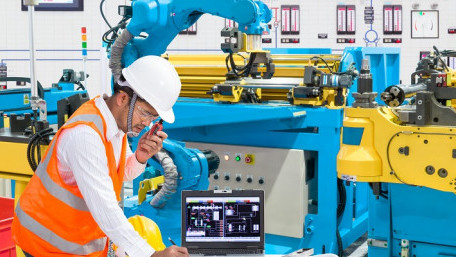
When a robot crashes, it needs to be put back into position. The steps in this process depends on the end user and the…
When a robot crashes, it needs to be put back into position. The steps in this process depends on the end user and the equipment manufacturer. Understanding why the robot crashed also helps prevent future failures.
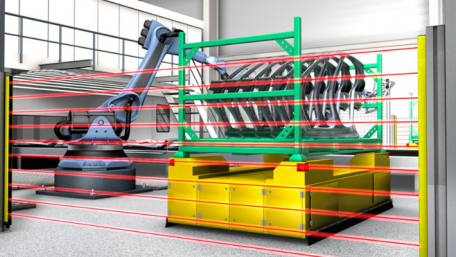
Light curtains serve as an invisible barrier, keeping workers out of harm's way and protecting machinery from damage.…
Light curtains serve as an invisible barrier, keeping workers out of harm's way and protecting machinery from damage. Learn about safety curtains, how they are installed, and their programmable functions.
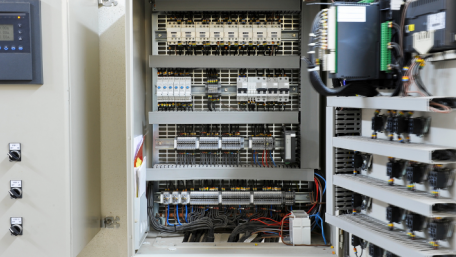
Industrial control panels are at the heart of control systems. Learn about the standards and regulations that dictate…
Industrial control panels are at the heart of control systems. Learn about the standards and regulations that dictate industrial control panel design for safety and efficiency, including NFPA 70, UL 60947-4-1, and NFPA 79.
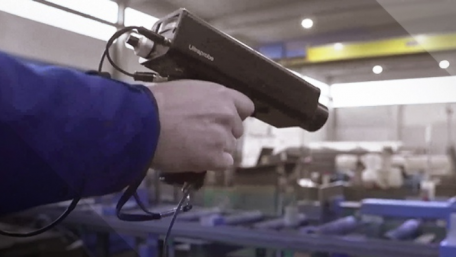
Pressurized gas leaks can sometimes be heard with the human ear, but small leaks with ultrasonic sounds are much more…
Pressurized gas leaks can sometimes be heard with the human ear, but small leaks with ultrasonic sounds are much more difficult to detect. Ultrasonic leak detectors can help to find otherwise undetectable leaks.
